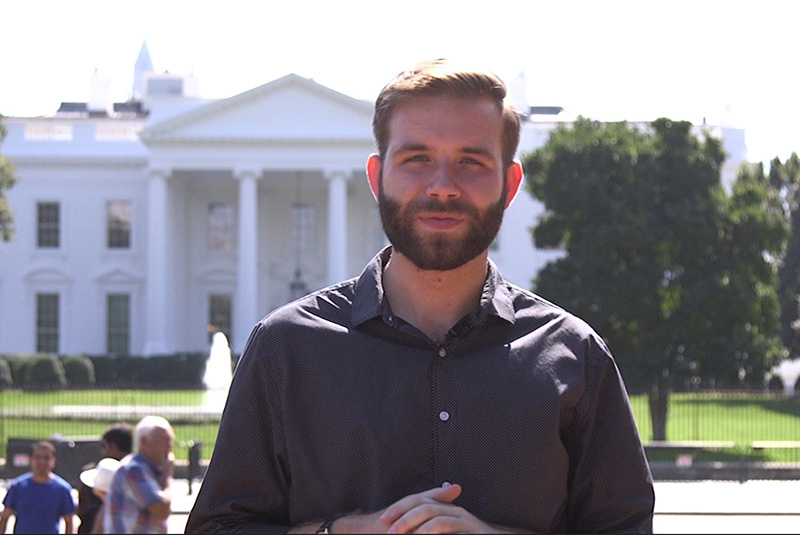Developing Expertise in Security, Strategy, and Statecraft

Gregory Kist
MAIR '21
Q: What encouraged you to apply to Johns Hopkins SAIS?
Johns Hopkins SAIS appealed to me for several reasons. First, although I chose to focus on security and strategy, I knew I needed to strengthen my knowledge of international economics. Despite attending the London School of Economics for my undergraduate degree, I ironically never took economics classes there and I knew that I wanted to rectify this in my graduate studies. The emphasis SAIS places on international economics therefore set it apart from other international relations graduate schools I was looking at. Secondly, I liked that many of the professors at SAIS are practitioners by trade. I chose to attend graduate school to better prepare me for a career as a policymaker, so having the opportunity to learn from professors like Prof. Mara Karlin (former Deputy Assistant Secretary of Defense for Strategy and Force Development) and Prof. John McLaughlin (former Acting Director of the Central Intelligence Agency) who have actually worked in policy roles was very important to me.
Q: What was one of your favorite experiences during your first year of graduate study?
One of my favorite experiences during my first year of graduate studies was a three day study trip to Fort Bragg in North Carolina. During the trip I had the opportunity to meet with the commanding general of US Army Special Operations Command and learned more about the role of US Army Special Forces and the training they go through. I was also able to experience some elements of this training first hand, trying out their parachuting simulator, simulated weapons training, and cognitive training. It was a great opportunity to get first hand exposure to their work and to get to know my classmates better.
Q: Could you please tell us about your role as the Co-Lead for the school's National Security Salon Series?
As a Co-Lead for the National Security Salon Series, I will help organize “salons,” wherein my co-lead and I will invite an outside expert to speak to the group and then facilitate a discussion of the topic by the participants. To make the discussion as engaging as possible, the salons will be limited in size and we will distribute a few articles on the topic to participants ahead of time so they come into the salon with some knowledge of the subject. By hosting these salons we hope to foster thoughtful discussion of some of the most pressing national security issues by students of all concentrations in a more casual setting and get students thinking of issues that may not be covered in class.
Q: Could you please tell us about your summer internship and how it complemented your graduate studies?
I currently serve as a Rosenthal Fellow in the US Department of Defense’s Office of Special Operations and Combating Terrorism, where I work on counterterrorism and irregular warfare policy in the Indo-Pacific. This work primarily involves overseeing the various partner capacity building programs US Special Operations Forces conduct to strengthen our partners’ ability to defeat unconventional threats. An unexpected component of this fellowship is that the Department’s hostage and personnel recovery policy is run out of the same team, so I’ve been learning a lot about how the US government works to bring home hostages held abroad. I obtained this opportunity through the Rosenthal Fellowship, which is run by the Partnership for Public Service. The fellowship places current masters students in internships with federal departments and congressional offices focused on international affairs, and couples this with professional development and networking events. Every member school of the Association of Professional Schools of International Affairs nominates students for the fellowship, and I was fortunate enough to have been one of the students nominated by SAIS. After receiving the fellowship, the Partnership for Public Service set up a series of interviews between me and prospective host offices until finally matching me with SOCT. Students interested in the Rosenthal Fellowship should speak to the Global Careers office and look out for when applications open in the fall.
Q: What do you hope to do with your degree after you graduate?
I actually just accepted a job offer to join the US Department of Defense after graduation. However, my passion has always been for the practice of foreign policy in the field and so in the long run I hope to join the US Department of State’s Foreign Service.
Back to Student Stories